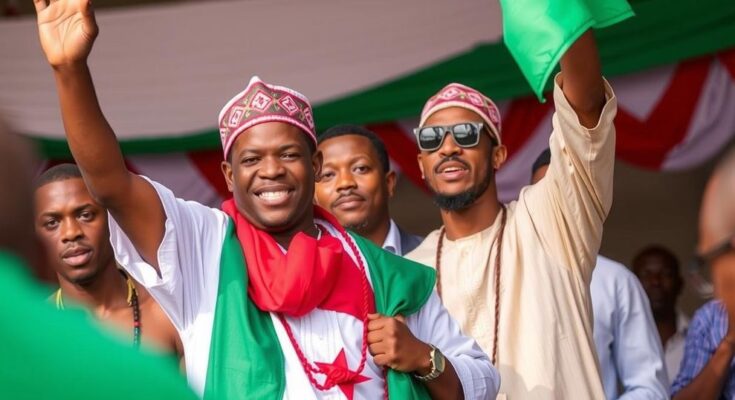Chad’s ruling Patriotic Salvation Movement has won a majority in a parliamentary election that was boycotted by opposition parties citing lack of transparency. President Mahamat Idriss Deby lauded the election as a democratic step, while critics remain concerned about electoral integrity and representation as the country navigates complex political transitions.
In the recent parliamentary elections in Chad, the ruling Patriotic Salvation Movement (MPS) led by President Mahamat Idriss Deby has achieved a majority, securing 124 of the 188 seats in the National Assembly. Despite a reported voter participation rate of 51.56%, the election was boycotted by key opposition parties, who criticized the electoral process for a perceived lack of transparency. Deby and his government hailed the elections as a significant step towards democratic transition, despite opposition claims that the results are not representative of the populace’s will.
The National Elections Management Agency (ANGE) confirmed the latest results, which included the representation of 38 political entities in the assembly, although specifics on how seats will be allocated to non-MPS representatives remain unclear. The opposition, particularly Succes Masra’s Transformateurs party, expressed skepticism towards the legitimacy of the elections, asserting that they would be biased. Critics have pointed to a history of government practices that undermine opposition participation and electoral integrity.
President Deby ascended to power three years ago after declaring himself interim leader following the death of his father, who had ruled for 30 years. Since his election in May, Deby has made notable shifts in foreign relations, including the termination of a military cooperation agreement with France and threatening to withdraw from a regional security alliance. Such actions reflect a broader trend in the region, with other nations like Mali and Niger also moving away from former colonial ties.
In light of recent developments, the Chadian government announced that security forces successfully thwarted an alleged attack on the presidency, labeling it a potential attempt to destabilize the current administration. This highlights the ongoing security challenges within the country amidst its political transition.
Chad has a complex political history marked by long-term authoritarian rule and recent transitions following the assassination of former President Idriss Deby during a conflict. The country has been navigating a tense political landscape, with opposition parties often accusing the government of lack of transparency and repression. The current electoral processes are being scrutinized amidst dwindling civil liberties and reducing political pluralism, complicating Chad’s road to a fully realized democratic governance.
The recent parliamentary elections in Chad illustrate the ongoing political turmoil and challenges to democracy in the country. The ruling party’s significant victory amid a boycott by opposition groups raises questions about electoral integrity and representation. President Deby’s administration continues to face pressure from opposition critics while managing a delicate balance between domestic security and international relations, particularly as it distances itself from France.
Original Source: www.dw.com




